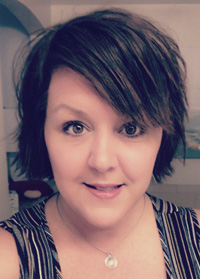Mother of five. Seeker of justice. Believer in good.
 I was in college before I heard of Black Wall Street.
I was in college before I heard of Black Wall Street.
Black Wall Street was a neighborhood on Greenwood Avenue in Tulsa, Oklahoma in the early 1900s where African Americans had created a self-sufficient infrastructure with a prosperous business community. The area was over 36 square blocks with 600 black owned businesses. It had its own grocery store, barbershop, doctors, real estate offices, schools and newspaper. The community supported its own churches and had 21 restaurants. Six of the black business owners owned their own planes at a time when the entire state of Oklahoma only had two airports. It was a fascinating and highly successful community for more than two decades.
I never heard of it until I was an African American studies minor in college. I had also never heard of the Tulsa Race Riots, the largest massacre of non-military Americans in the history of our country.
The Tulsa Race Riots would wipe out Black Wall Street and kill more than 300 people. 800 more were injured and 36 city blocks were devastated and burned by an angry white mob that descended on Greenwood Avenue. It was a coordinated attack on the ground and kerosene bombs from planes in the air. This attack would leave more than 9,000 people homeless.
Not a single lesson on it in my lifetime.
I heard it mentioned in one of my black studies classes in college and would go on to research it myself. Why had I never heard of this before? Why wasn’t the largest non-military killing of Americans not mentioned in my history books?
The Great Migration: When more than 6 million blacks migrated from the south and its segregationist laws to the north and awaiting opportunity. An important event in U.S. history. After all, I had learned about Europeans settling in the West.
The horrific Tuskegee Institute Experiment, where 600 black men were unknowingly enrolled in a study for syphilis that would take some of their lives and infect their families when they were inhumanely held from a cure.
Henrietta Lacks was an African American woman that died from an aggressive form of cervical cancer in 1951 and her cells were harvested without her permission. HeLa has become one of the most important cells in history and is responsible for countless cures and vaccinations, including polio and HPV, yet I never heard her mentioned in science.
Shirley Chisholm. Granville Trailer Woods. Ida B Wells. Mary McLeod Bethune. I could fill this page with names that belong in our history books.
February is Black History Month. Without the focus on Black History during the month of February, these stories simply haven’t been told. The impact of people of color on our country has been largely absent from our traditional history books. While I pray that changes and our schools nationwide begin to adapt a more inclusive curriculum, we must be intentional in teaching our children a true picture of American History.
The African American history even right here in Hamilton County is so rich and I encourage you to research it as a family. There are several events in our city to expand our thinking and celebrate alongside our neighbors in the month of February. On the 16th and 17th you can view Black Panther at the Noblesville East Public Library. Conner Prairie, in partnership with Asante Children’s Theatre will look at the achievements of and challenges of black Hoosiers by playwrights of color on the 16th and 23rd. On the 27th at the Noblesville East Public Library you can take a look at the relationship between the white settlers in this area and an African American fur trader named Pete Smith that helped them navigate their first year here.
The Noblesville Diversity Coalition looks forward to ‘Celebrating Black History Through You’ on at 6:30 p.m. on Monday, Feb. 25 at Ivy Tech. In honor of Black History Month, the evening will highlight the arts as created and interpreted by our own community. Essays, spoken word, dramatic expression and performances from local students and adults will bring an awesome energy to the evening. Mr. Kinetik, Butler University Men’s Basketball emcee and creator, writer and recorder of funky sounds will guide us through a memorable evening reflecting Black History.
All ages are welcome for what is sure to be a memorable event.

I’m not seeing info regarding tickets/cost for this event. Is it a “Donations accepted” type thing? Through which doors should people enter?